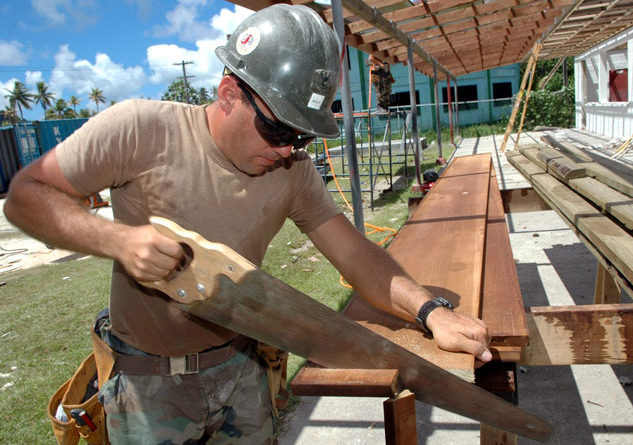By: Better Business Bureau
You can reach your BBB at info@bbbemail.org or (510) 844-2000, or by visiting bbb.org
Hiring a contractor to help with home renovations can be a big decision. That’s why your Better Business Bureau encourages you to Start With Trust® by doing your research on bbb.org to find an accredited contractor. Every accredited contractor must meet BBB’s Eight Standards for Trust, which are “principles that summarize important elements of creating and maintain trust in business”.
A contractor is anybody you hire to provide materials and labor to complete a job. Some contractors focus on a specific type of project, like plumbing, tiling, and painting; while others will work on any type of project. For larger projects, a general contractor may also serve as a project manager working with other vendors to get all the work done.
Hiring the right contractor is one of the most important steps for your project, so to make it less stressful, you can hire a vetted BBB accredited contractor. Every contractor with a BBB Accreditation Seal must not only meet our initial Accreditation Standards, but also maintain them and have open communication with their customers.
Avoid any home renovation horror stories by following these tips:
- Research and gather information. You can search for a contractor’s Business Profile at bbb.org to get free information on their history of complaints, read verified Customer Reviews, and check to make sure they’re an Accredited Business. BBB Accredited Businesses make a commitment to uphold BBB’s accreditation standards including: to build trust, advertise honestly, tell the truth, be transparent, honor their promises, be responsive to their customers, safeguard privacy and embody integrity. Also search for the name of the company online along with “Complaint”, “Review” or “Scam” to find different results. Ask the company if employees and sub-contractors undergo a background check. Are they trained and certified? What identification will they show when they come to your home?
- Ask for references. Ask the contractor for a list of recent local references you may contact. Ask the references about the services performed and their overall experience with the contractor and the quality of work. Ask if the contractor stuck to the estimated budget and completion date for the project. If possible, inspect the contractor’s work yourself. Ask if the contractor is a member of a professional association that has standards or a code of ethics.
- Ask for multiple quotes. You should always shop around and get at least three quotes from different businesses. Make sure all bids consider the same set of criteria. Remember that the lowest bid may not necessarily be the best bid; if one bid is significantly lower than the others, the contractor may be cutting corners or may not understand your work requirements.
- Get it in writing. Always get estimates in writing and never let any work begin without a written and signed contract. Do not be pressured into signing an agreement before you are ready and make sure you read and understand everything before signing. The contract should include contact information, start and complete dates, a detailed description of the exact work to be done, any material costs, payment arrangements, and warranty information. Specify who is to obtain necessary building permits and who is responsible for clean-up. Make sure all verbal promises are included in the contract. Ask how much work will be subcontracted and ask for information on the subcontractors. Ask questions if you do not understand any part of the contract. Never sign an incomplete or partially blank contract.
- Verify license and insurance. Always be sure that the company you decide to work with has the necessary licenses and insurance to work in your region. In California, you can get to your state’s licensing agency to learn more here. Your local BBB can help. Once you have your contractor’s insurance information, call the carrier to confirm appropriate coverage for worker’s compensation, property damage, and personal liability in case of accidents.
- Confirm building permits. Your contractor must have the correct permits before starting your project. They will usually obtain the permits, but you will probably pay for them. That should be detailed in your contract. Request that all final inspections be completed by the local building official prior to final payment.
- Inquire about a lien waiver. A lien waiver, in the United States, is a statement from your contractor that says all suppliers and subcontractors have been paid for their work. In some Canadian provinces, there is a mandatory Builders Lien holdback, so ensure you understand any financial obligations you may be liable for.
- Think about future service issues. Make sure you are aware of your warranty coverage and how to deal with service issues.
- Arrange a payment schedule. Never pay in full up front. Stagger your payments so your final payment is not due until the work is complete and you have fully inspected it. Do not pay cash; make sure your check is written to a company, not an individual, or that you use a credit card. Paying with a credit card will provide some recourse should the job not be completed as stated in the contract.
- Get a receipt. Request a receipt marked “Paid in Full” when the job is completed and your final payment made.
- Keep your contract. Hold on to your contract for future reference or if any questions arise after the work is complete.
When hiring specialized contractors, there are additional factors to consider. Learn more:






